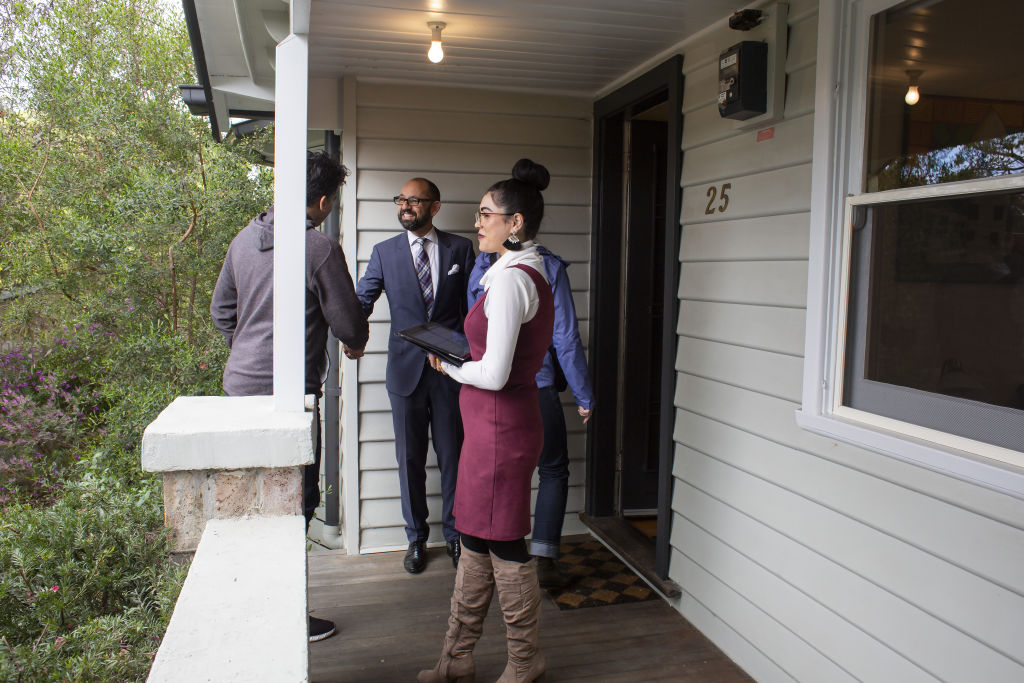How to get your rental application to the top of the list this year

Summer is the busiest time for the rental market. The weather is heating up, students are getting ready for university and job commitments change.
With more competition for sought-after properties, how do you stand out from the crowd?
Property managers revealed the key factors that can make or break a rental application and five ways to get yours to the top of the list.
- Related: The ultimate guide to renting
1. Fill in the application correctly
It may sound obvious, but leaving gaps can create a bad impression. If the agent can’t prove to the landlord you can pay the rent and look after the property, they will move on to the next application.
“I recently had a corporate couple who weren’t prepared to give any information,” says Principal and director of leasing and property management Kate Sommervelle, from Sydney’s Ayre Real Estate at Millers Point. “They said they thought it was a breach of their privacy.”
“There’s a certain amount of information that we need to cover ourselves and to be able to recommend to the owner that they’d be a suitable tenant.”
Property North’s Real estate agent Ben Benny from Sydney’s Balgowlah has seen a rise in the number of applicants wanting pet-friendly properties. On Sydney’s Northern Beaches, these properties are in high demand and in short supply.
“Put in as much information about your pet as possible and include a photo,” he said. “That always helps, because sometimes the landlord might picture some big dog, but really, it’s just small and cute and isn’t going to create damage.”
2. Prove you have paid rent on time
The landlord wants to know that you’ll pay the rent on time, so any evidence of your track record will be needed.
Your previous rental agency can provide a tenant ledger of your past payments. A reference from the owners of the property also helps.
James Bouziotis from Buxton Real Estate in Clayton, Melbourne, sees a lot of first-time renters without rental history. With Monash University close by, there’s a lot of competition at the start of the year for properties that accept students.
Having a guarantor organised beforehand can put your application ahead of others.
“We get photo ID from the guarantor,” Bouziotis says. “It’s the landlord’s decision at the end of the day, whether they want students or not.”
Some applicants may not have a tenant ledger due to owning property. In this case, proof of home ownership and history of mortgage repayments needs to go with the application.
3. Show you’re a good person
Real estate agents need to recommend who they think will be ideal tenants to the landlord. After providing the correct paperwork, they need to know you’re a reasonable, clean and reliable person.
“I’ve had open for inspections where people have been pushy and putting down the property,” says Sommervelle. “That sort of thing is not going to go in their favour.”
Some property managers look up applicants online and may ask for written references. “Bonus points if you can provide one from someone with a bit of clout,” Sommervelle says.
4. Prove you have income coming in
Recent payslips and bank statements no older than six months are crucial. Otherwise, income from property or other means needs to be provided.
Also, providing a resume can move you to the top of the list. “We can check this on LinkedIn, so they need to be honest,” says Sommervelle.
5. Show you will look after the property
The landlord needs to know their property is in good hands and looked after. Any information you can provide to prove this will work in your favour. Property managers are the first point of reference.
“Most property managers are pretty honest with each other, they don’t want to refer someone who’s bad and going to be a problem,” says Benny.
The tenancy database will also provide information on how well the property was looked after while in your care. If it was damaged and you were ruled against at the tribunal, it would be recorded there. “That’s a big red flag,” says Benny.
We recommend
States
Capital Cities
Capital Cities - Rentals
Popular Areas
Allhomes
More
- © 2025, CoStar Group Inc.










